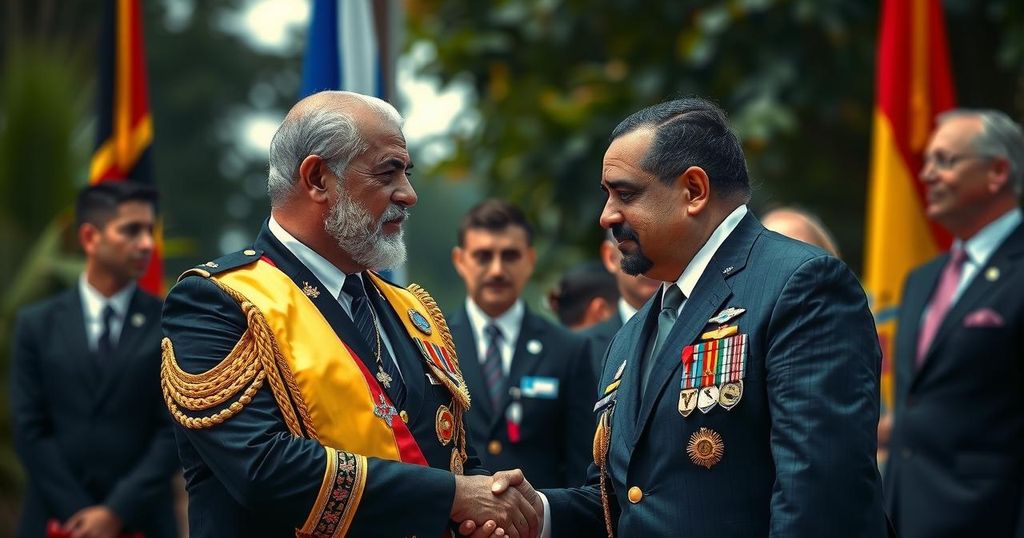Costa Rica Honors President Bukele for Violence Reduction Amid Controversy

Costa Rica honored El Salvador President Nayib Bukele with its highest diplomatic award, recognizing his efforts to reduce violence amid challenges from powerful street gangs. While Bukele’s support remains strong in El Salvador, his methods have generated debate regarding their impact on constitutional rights. President Rodrigo Chaves acknowledged the need to combat organized crime, as Costa Rica faces rising homicide rates linked to drug trafficking.
On Monday, Costa Rica honored El Salvador President Nayib Bukele by conferring upon him its highest diplomatic distinction, the National Order of Juan Mora Fernández. This accolade recognizes Bukele’s effective measures to reduce violence and combat powerful street gangs over a span of two years. President Rodrigo Chaves acknowledged Bukele’s achievements as Costa Rica grapples with escalating homicide rates, though Bukele’s methods, which include the suspension of several constitutional rights, sparked considerable debate within Costa Rica, known for its democratic stability. Chaves noted, “The fight against organized crime in any part of Central America is welcome. The reach and influence and bad example of the gangs must be reduced.” Notably, while Bukele enjoys significant public support and has been re-elected, Chaves lacks a legislative majority and has refrained from altering the country’s judicial framework to his advantage. The landscape of Costa Rica has transformed due to increasing violence related to drug trafficking, making the nation a crucial transit point for cocaine shipments destined for Europe and the United States. The homicide toll in Costa Rica reached a record 906 last year, highlighting the urgent security challenges facing Chaves’s administration. During the meeting, Bukele defended his methods, asserting the primacy of life over other rights and emphasizing the necessity of prioritizing public safety through aggressive action against criminals.
The diplomatic exchange between Costa Rica and El Salvador reflects broader issues of security and governance in Central America, where violence related to organized crime, particularly drug trafficking, poses significant challenges. Nayib Bukele’s presidency has been marked by an unorthodox approach to law enforcement, including measures that restrict certain constitutional protections to address public safety concerns. This has resulted in notably lower crime rates in El Salvador but has raised ethical questions regarding human rights and due process. Meanwhile, Costa Rica, once regarded as a beacon of peace and stability in the region, finds itself struggling with similar security issues, translating into a complex political dynamic as leaders assess governance strategies to cope with rising violence.
The awarding of Costa Rica’s highest diplomatic honor to President Bukele underscores significant regional security concerns, illustrating contrasting governance approaches. As leaders navigate the challenges posed by organized crime, the dialogue reveals the necessary balance between maintaining democratic values and ensuring public safety. Bukele’s controversial tactics have garnered support in El Salvador, raising questions for leaders like Chaves, who must contend with increasing violence amid calls for reform and accountability. Critical reflections on the means used to achieve security continue to shape the political landscape in Central America.
Original Source: abcnews.go.com







